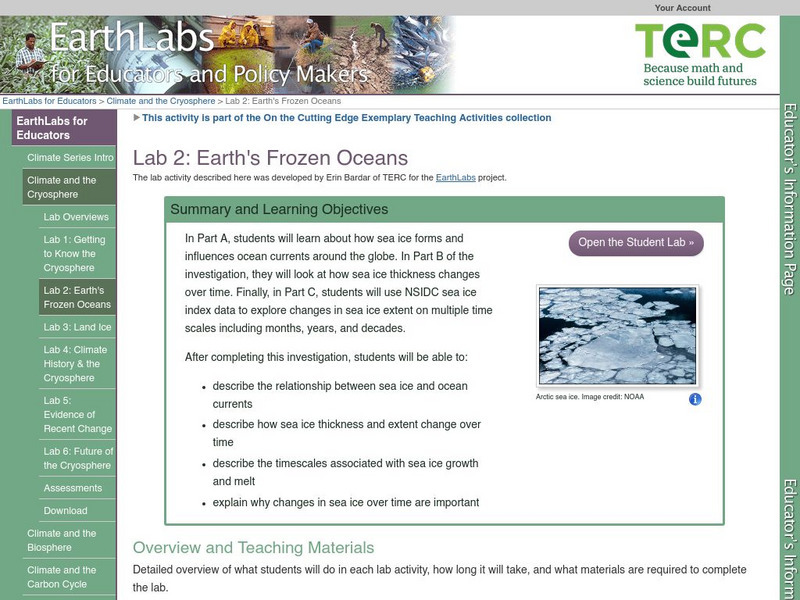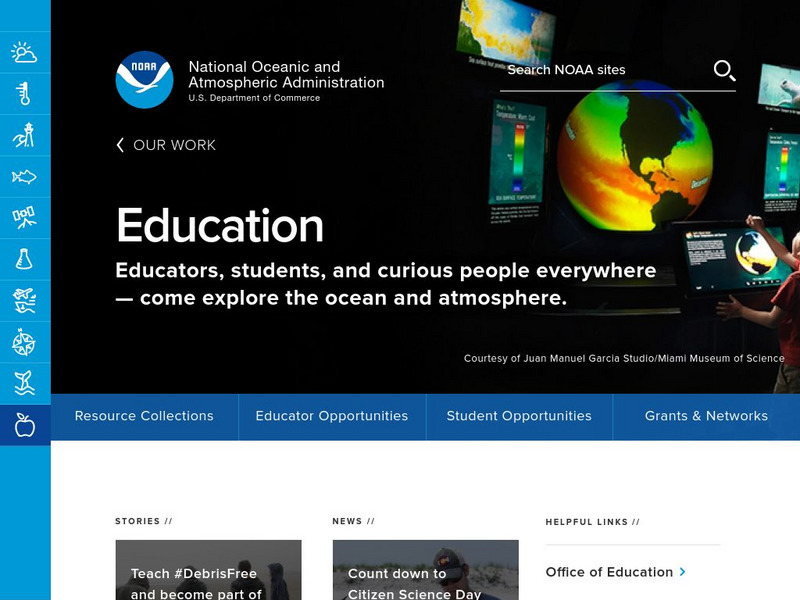Hi, what do you want to do?
Exploratorium
Exploratorium: Global Climate Change: Hydrosphere
Use this site to explore real scientific data relating to the hydrosphere. With this information you can gather evidence, test theories, and come to conclusions. Click on the data examples to view a full scale version.
Science Education Resource Center at Carleton College
Serc: Lab 2: Earth's Frozen Oceans
A lab experiment in a series of experiments that investigates climate and the cryosphere. In this particular lab, students explore how sea ice forms, how sea ice thickness changes over time, and how sea ice can affect ocean currents...
Other
Allerin: How Green Robots Are Helping With Environmental Sustainability
Robots are now being used to fight climate change and protect our green environments. They help to fight forest fires, manage our waste, restore the oceans, support renewable energy initiatives, and make agriculture more-environmentally...
NASA
Nasa Earth Observatory: Polar Paradox
In this article about global warming, learn how the warming climate could affect the polar ice caps, glaciers, sea ice, and amount of freshwater entering the polar oceans. Read how some scientists believe global warming could add to...
Other
Cape Farewell Arctic Voyage
Cape Farewell is an organization dedicated to the study of the ocean's role in regulating global temperature and its relationship to climate change and global warming. Each year a trek is made in order to study these climate changes....
NOAA
Noaa: Education Resources
Links to earth science sites, including safety tips, fun activities, general earth science information, and daily weather reports and more.
Texas A&M University
Ocean World: Bringing the Ocean to the Classroom
Online resource for students and teachers to see information on icebergs, fisheries, coral reefs, waves, currents and more. Provides teachers with learning activities. Has its own ask-an-expert site (Ask Dr. Bob), and provides real-time...
National Center for Ecological Analysis and Synthesis, University of California Santa Barbara
University of California: A Global Map of Human Impacts to Marine Ecosystems
Maps in different categories such as fishing, climate change, and pollution were pulled together into a composite map that shows the impact of humans on the world's oceans. Analysis at the time (2008) showed that 40% of the world's...
Center for Educational Technologies
Nasa Classroom of the Future: Coral Reefs: Dissappearing Resource
Why are the reefs disappearing? Use this site to explore the science behind the issue. Useful at several grade levels.
Other
Georgia Perimeter College: The Permian Period
This resource provides basic information of the changes that took place during the Permian period as well as the animals that populated the Earth during this time.
Other
Earth Sky: When Did Humans Start Altering Earth?
The ArchaeoGlobe Project assessed knowledge on human land use over the past 10,000 years, through the contributions of more than 200 archaeologists. It concluded that, by 3,000 years ago, most of Earth was already transformed by...












